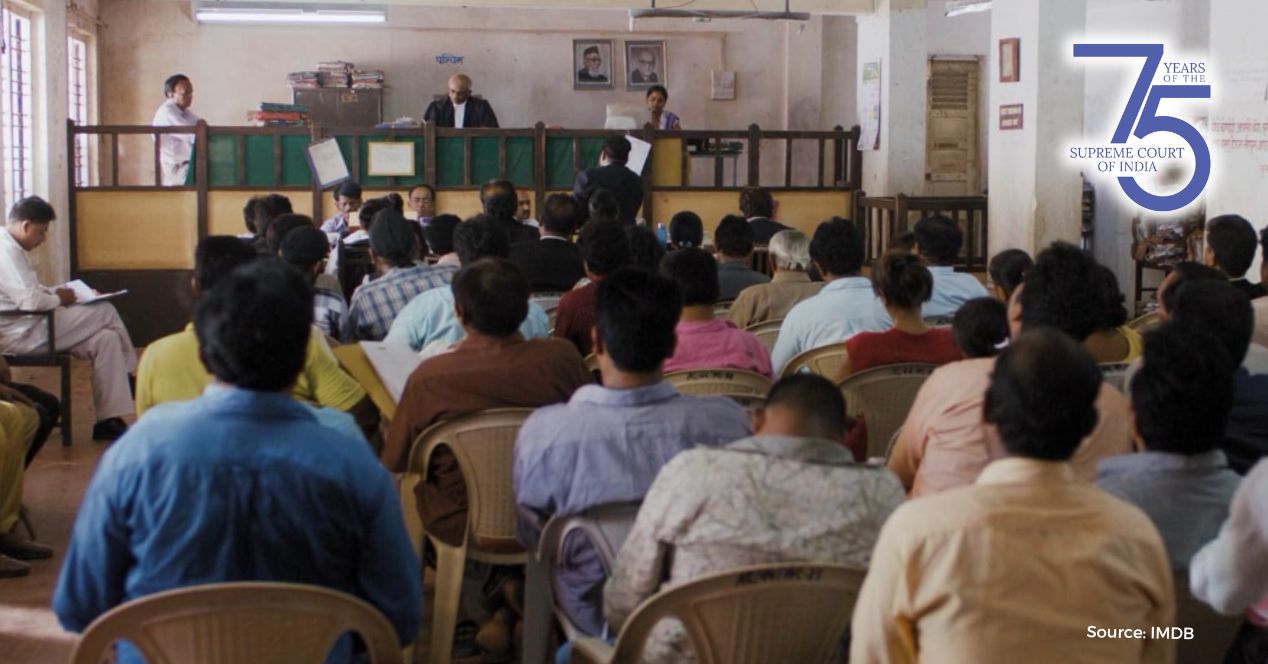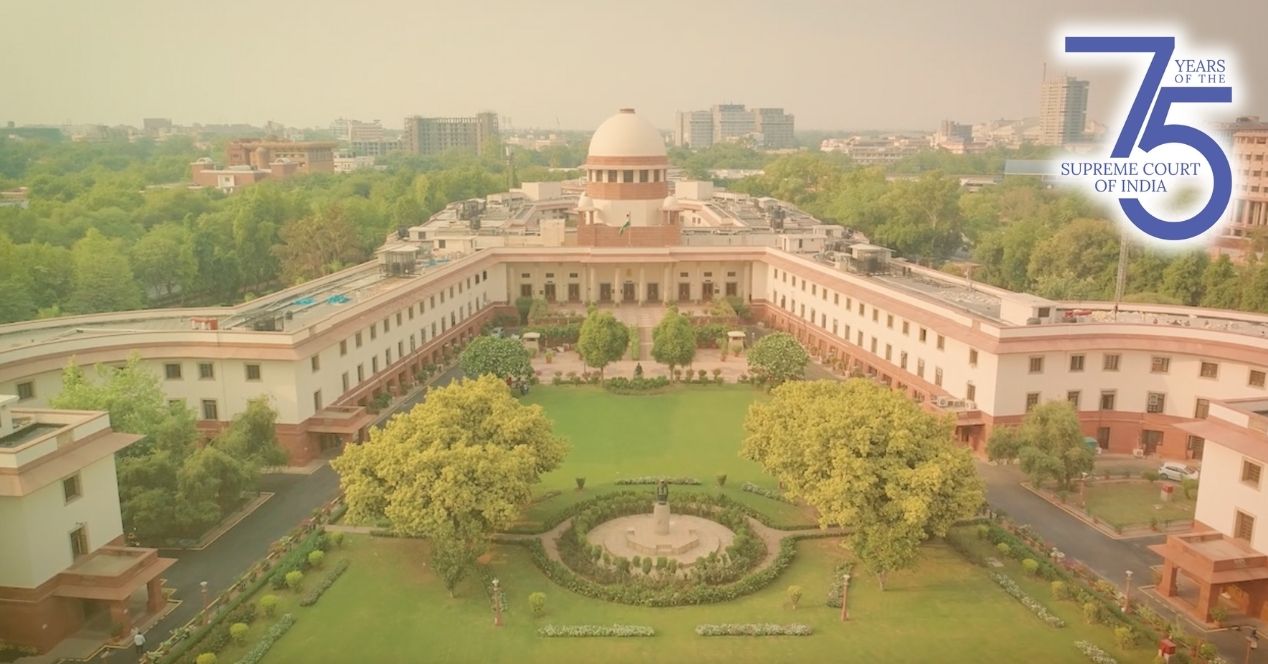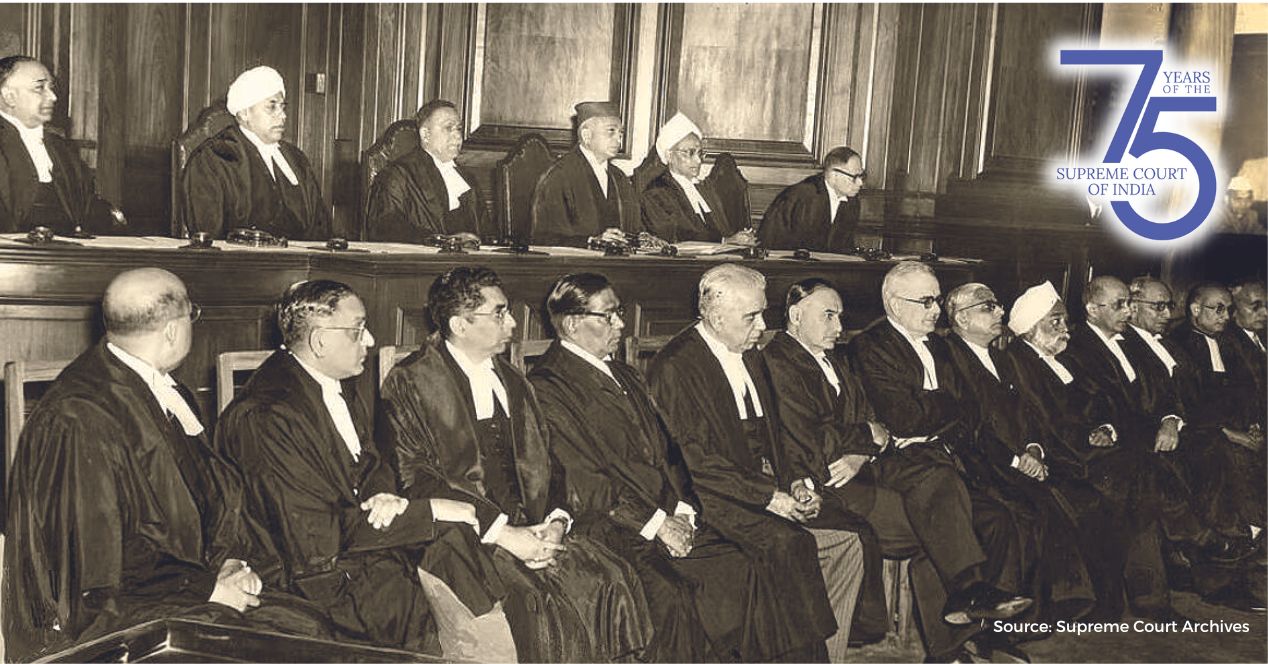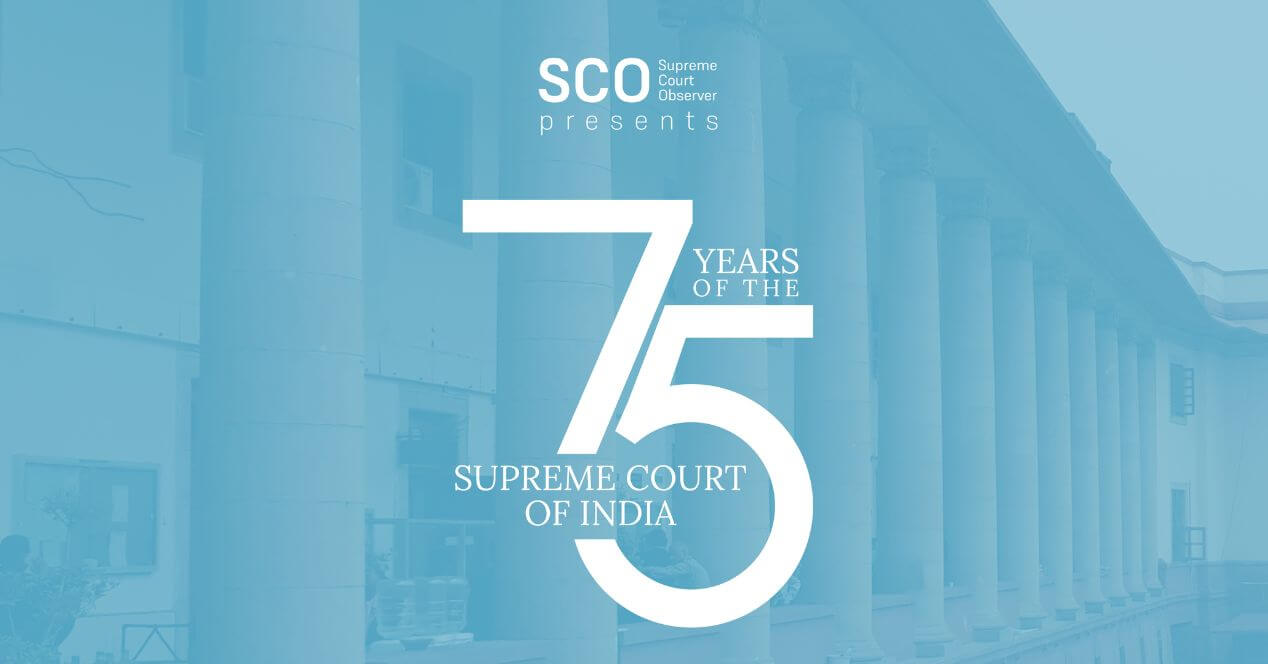Freedom of Speech and Constitutional Nostalgia
A look at one of the SC’s earliest landmark decisions and its fallout warns against an uncritical veneration of our constitutional past
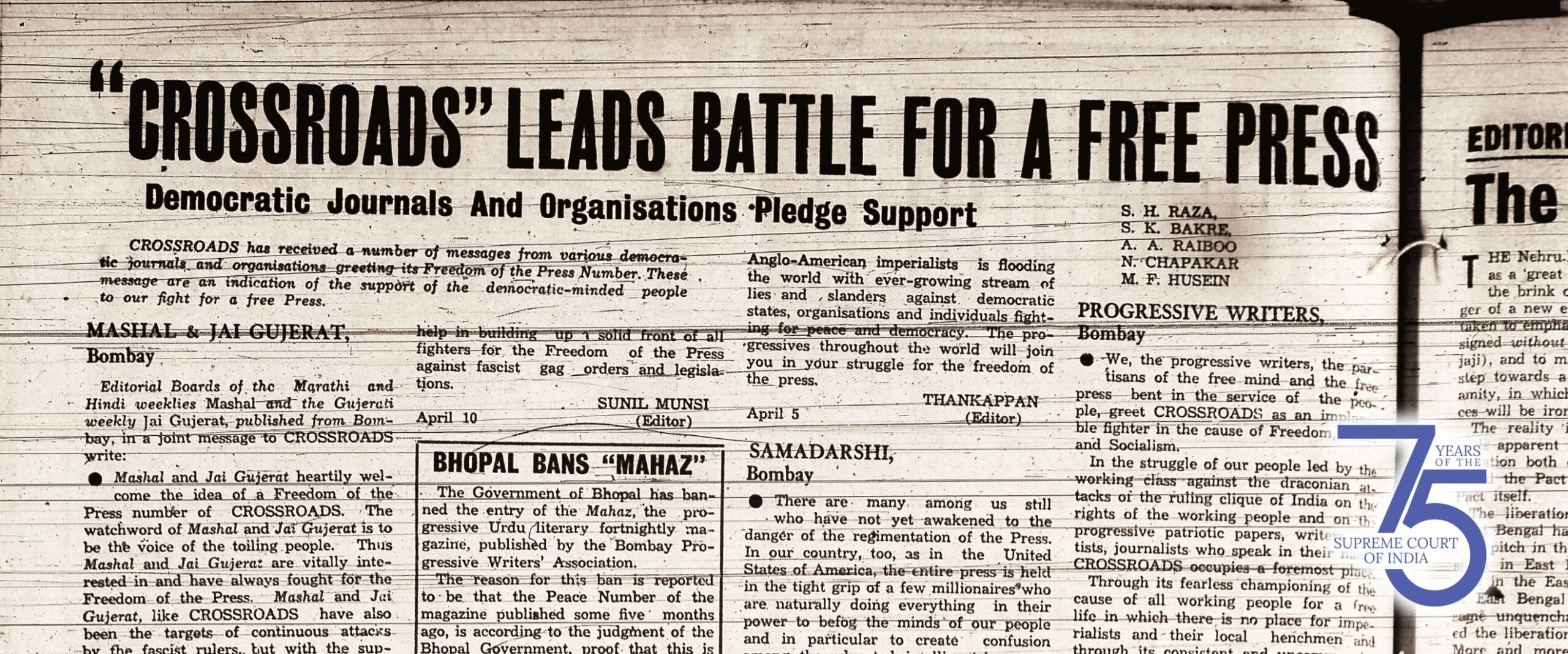
In March 1950, Romesh Thapar, founder-editor of the journal CrossRoads, challenged an order of the Madras government banning the entry and circulation of the journal into the State of Madras. Two months later, the newly constituted Supreme Court upheld his challenge and struck down the Madras Maintenance of Public Order Act, 1949, claiming that it violated the fundamental right to freedom of speech and expression guaranteed by Article 19(1) of the Constitution. The success of the first constitutional free speech challenges made Romesh Thappar [sic] vs. State of Madras (1950 AIR 124; also known as the CrossRoads case) a constitutional landmark. (In a parallel case decided on the same day, Brij Bhushan and Another vs. State of Delhi (1950 AIR 129), the Court also upheld a free speech challenge by the RSS weekly Organiser; however, the CrossRoads case is the more well-known of the two).
The CrossRoads case also had an important constitutional afterlife: the following year, the government passed the first amendment to the Indian Constitution, which aimed in part at undoing its constitutional effects. The amendment was widely criticized at the time as an unwarranted infringement of free speech rights and continues to be seen as a black mark against Nehru’s government by contemporary commentators such as Lawrence Liang, Pratap Bhanu Mehta and Ramachandra Guha.
What can reflection on CrossRoads, and the case which bears its name, teach us about freedom of speech today? The answers, I suggest, are surprising.
Romesh Thapar launched CrossRoads on 29 April 1949. The journal had strong communist leanings, though neither he nor his wife Raj were members of the Party. The first issue gives an indication of the range of its interests: it included articles by Mulk Raj Anand, Pablo Neruda, Maurice Dobb, C.N. Vakil and Balraj Sahni. In an editorial titled ‘What another one!’ Thapar made the case for the new journal in forthright terms:
“Why CROSSROADS? Because as a people we are at the crossroads and must find a path out of the jungle of conflict on almost every aspect of life – politics, economics, art, drama, literature, human relations and what have you. In such an age, we are all assailed by many doubts, but we can still attempt to evolve a consistent and honest approach to the multitude of problems that confront us.”
Thapar did not hide his communist sympathies, noting that he was asked to give a security deposit when starting the magazine because, according to the officials at his interview, “The author is considered a staunch communist, likely to publish objectionable material.”
The journal was not going to hide behind the fig leaf of ‘neutrality’:
‘We shall not be afraid of being partisan, for in such an approach, there is more integrity than in the ways of the wishy-washy compromisers who pride themselves on their so-called ‘neutral’ attitude. Neutrality, today, means in effect a support for the status quo. We reject the policies of the status quo and the confusion that arises from them. We shall take a democratic path, measuring every act on the basis of how it affects the future of the broadest sections of the people.’
In the same editorial, Thapar also issued a stirring call to the values of dissent and free speech:
‘We go forward in the confident hope that the many friends of independent thought and action will rally to our side. People must have the courage to speak out if they believe certain things are important to say. In that way lies integrity, because criticism is the essence of democracy. And we are fully conscious of our responsibilities.’
CrossRoads was strongly anti-Congress, though it did not spare the socialists, and it was also critical of the ‘murderous activities’ of ‘reactionary Hindu organizations’ such as the Hindu Mahasabha and the RSS. It had a regular feature called ‘Our Congress’ which made fun of the current dispensation based on news snippets, as well as humourous cartoons and covers, some drawn by the well-known artist, Chittoprasad.
…
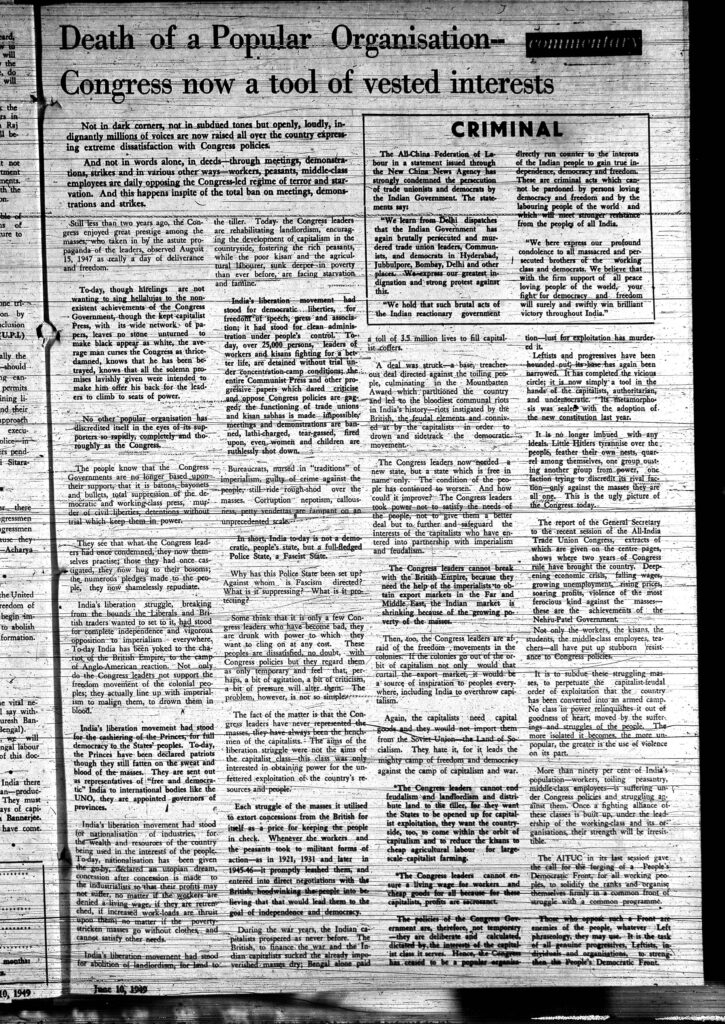
Reading CrossRoads today is exciting because it complicates our nostalgic picture of the struggle for Indian independence, and the birth of the Constitution in 1950. It expressed the communist critique that independence was in some ways a continuation of imperial policies in a different garb; it also offered trenchant criticism of the Draft Constitution, which it referred to as the ‘Slave Constitution’.
Nostalgia for Independence is often allied with nostalgia for the Constitution and the values for which it is taken to stand, which are seen as incompatible to the theory and practice of the Hindu right today. An unfortunate side effect of taking this stance is to give a certain kind of critical immunity to the 1950 Constitution, for instance by calling it a ‘sacred text’. The criticisms of the draft Constitution to be found in CrossRoads are a welcome reminder that it was criticized in its time for not being a particularly progressive document in the first place, particularly when it came to issues such as civil liberties. (It was the communist leader Somnath Lahiri who memorably complained in the Constituent Assembly that the draft Constitution had been framed ‘from the point of view of a police constable.’)
….
CrossRoads the journal can be justly celebrated for its independence, verve, and defence of freedom of speech. But what about the CrossRoads case? Here matters are more complex: an assessment of its contribution to Indian free speech jurisprudence requires a technical excursus into the legal issues involved. These concerned the proper scope of the exceptions to the fundamental right to speech and expression guaranteed under Article 19(1)(a) of the Constitution.
These were laid out in Art. 19(2), which originally read: “19(2) Nothing in sub-clause (a) of clause (1) shall affect the operation of any existing law in so far as it relates to, or prevent the State from making any law relating to, libel, slander, defamation, contempt of Court or any matter which offends against decency or morality or which undermines the security of, or tends to overthrow, the State.”
The statutes challenged by CrossRoads and the Organiser gave the state the right to censor expression in the interests of ‘public safety’ or ‘public order’, for instance in order to prevent a riot: they had been enacted in the late 1940s as responses to communal and communist violence, though figures such as Nehru were concerned more with the former. The legal question was whether they related to any matter which ‘undermines the security of, or tends to overthrow, the State.’ If they did, then Art. 19(2) would protect them from constitutional review.
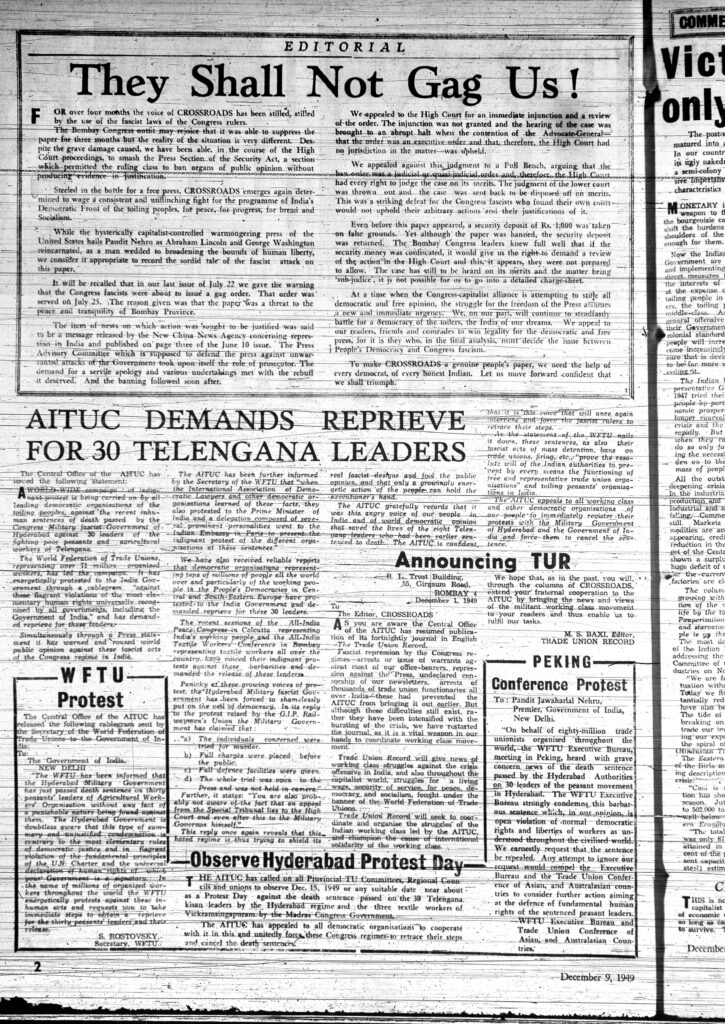
The Supreme Court concluded that these statutes did not fall within the scope of the Art. 19(2) exception. It drew a contrast between ‘serious and aggravated forms of public disorder which are calculated to endanger the security of the State’ with ‘relatively minor breaches of the peace of a purely local significance.’ It reasoned that the constitutional text concerned only disorders of the first kind, and protected only those laws which aimed at speech which involved ‘nothing less than endangering the foundations of the State or threatening its overthrow.’ The Public Safety Acts were held unconstitutional because they gave governments power to restrict speech in the interests of public order, even when these challenges would not be so grave as to undermine the security of the state or tend to overthrow it.
Contemporary discussions of the CrossRoads case present it in a positive or at least neutral light because it involved striking down a speech restrictive law. I would argue, as a purely legal matter, for a much more negative assessment.
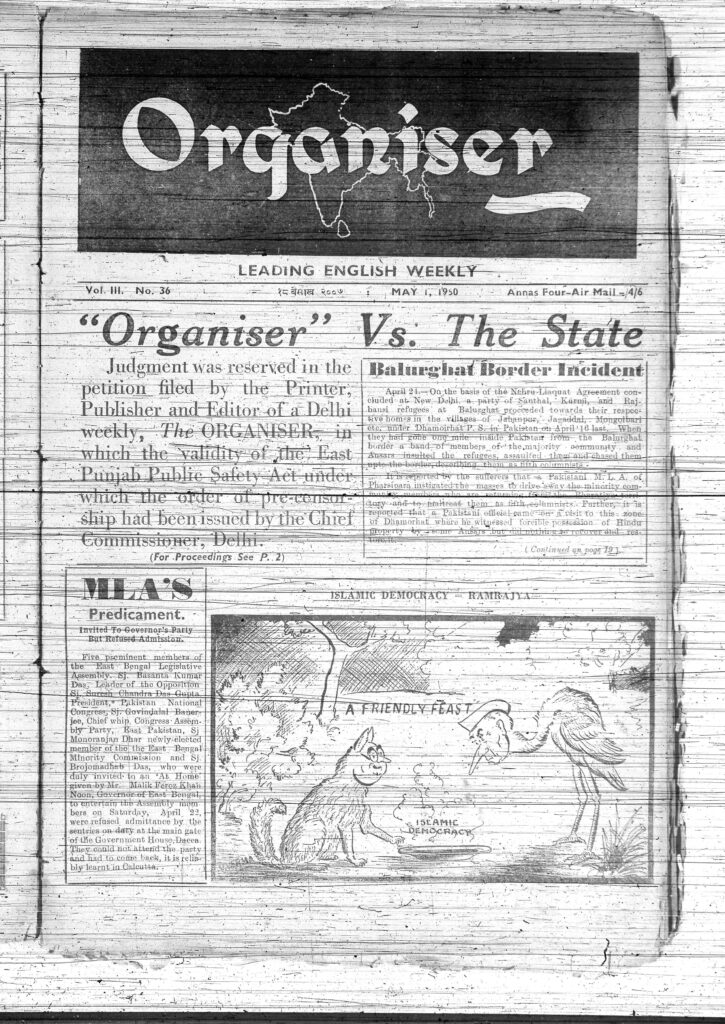
Two features of the case are noteworthy. First, its conclusion is astonishing. The classic civil libertarian case for restricting speech is to prevent acts of violence which might result from speech, especially when there is no feasible alternative; this was the crux of the famous ‘clear and present danger’ test which had by that time become the standard used by the US Supreme Court. Yet, the CrossRoads decision seemed to disallow any such restrictions, as long as the violence sought to be prevented did not ‘endanger the foundations of the State.’ Second, the reasoning in the CrossRoads case was narrowly textualist in nature: it paid very little attention to the constitutional values involved in protecting speech, and thus gave very little guidance for resolving disputes around such protection.
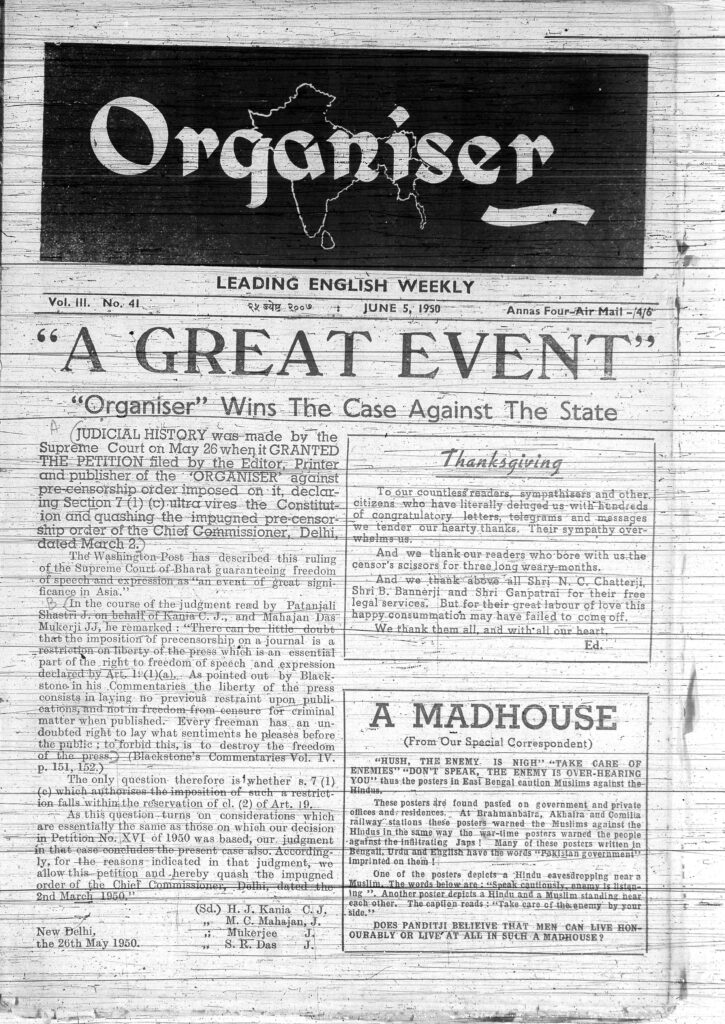
The constitutional effects of the CrossRoads judgement were felt throughout the country, as various High Courts used it to invalidate sections of the Press (Emergency Powers) Act, as well as the sedition clause of the Indian Penal Code. They were not always happy to do so, for they recognized its radical implications. Thus Justice Sarjoo Prasad of the Bihar High Court noted that it seemed to disallow laws aimed at restricting speech which directly incited or encouraged murder.
The context was a challenge to sections of the Press Act involving the incitement or encouragement of murder or cognizable offences involving violence. Cases may be conceived where the publication may relate to murders or offences involving acts of violence without any political motives and yet publications relating to such murders may come within the mischief of section 4(1)(a) of the act. Cases may be conceived where directly or indirectly murders or acts of violence of that kind may be approved or admired. Let us, for instance, take the case of an individual who is a terror in a particular locality because of his being the head of a gang of dacoits and robbers. The man may have been clever enough to escape the clutches of the law, yet the people in the locality are so tired of him that pamphlets or leaflets are published inciting his murder or assassination. It may also be that even after the man is murdered, the people of the locality or some of them may publish documents approving the conduct of the murderer. Evidently, these acts have been done not with any political motive, yet these publications come as much within the mischief of section 4(1)(a) and (b) as any other publication relating to crime of a political character.’
Sardar Patel had recognized the radical implications of the CrossRoads decision early on, and the government spent some months trying to understand how to nullify it. In May 1951 it introduced the Constitution (First Amendment) Bill. The Statement of Objects and Reasons made explicit reference to Justice Sarjoo Prasad’s comment: ‘The citizen’s right to freedom of speech and expression guaranteed by article 19(1)(a) has been held by some courts to be so comprehensive as not to render a person culpable even if he advocates murder and other crimes of violence. In other countries with written constitutions, freedom of speech debarring the State from punishing or preventing abuse of this freedom.’
The bill sought to widen the scope of the Art. 19(2) exceptions, to protect speech-restrictive laws passed in the interests of the security of the state, friendly relations with foreign states, and public order, and make explicit that restrictions of incitement to an offence were constitutionally permitted.
The bill was criticized on a number of grounds as soon as it was introduced, both inside and outside Parliament, though supporters of the bill such as Nehru and Ambedkar argued that it was necessary because either the court’s had reasoned correctly on the basis of the constitutional text, but thereby revealed flaws in the text itself (Nehru), or the reasoning of the court was itself flawed as an instance of constitutional interpretation (Ambedkar). But even the greatest opponents of the bill such as Syama Prasad Mookerjee conceded that the Supreme Court’s decision with respect to the ‘public order’ exception was flawed and required correction.
In this respect, at least, I think a strong case could be made for the necessity of the First Amendment and, to that extent, I think that contemporary criticisms of the bill miss the mark. One might justly celebrate Romesh Thapar’s victory in the CrossRoads case because he was unjustly persecuted by the Madras government for voicing perfectly legitimate criticisms. But one can do so without celebrating the legal case which gave him this victory.
I think there are good reasons to hail CrossRoads the magazine and what it stood for, though a more careful reading would also have to take into account an assessment of Indian communism in the 1940s and ’50s; these are tasks for another time. But the relatively technical point made above about the case should alert us to the contemporary dangers of what one might call ‘constitutional progressivism’. One should not rest one’s assessment of a legal case purely on whether it produces what one regards as the right outcome.
Liberal discourse around the law is sometimes marred precisely for this reason: as long as one gets the right result, one is not overly concerned with the broader implications, both procedural and substantive, of how they come about. While the short-term gains are tempting and often substantial, they are not good for the institution of the judiciary, and the standards of legal argument, in the long run. One important lesson of the CrossRoads case is that defenders of free speech as a value need not celebrate all defences of free speech in a legal context. There is no contradiction in believing in free speech as a value and recognizing the necessity of restricting it in some cases, for instance when doing so is required to prevent violence. Furthermore, legal defences of free speech can be judged on jurisprudential values which are independent of the desirability of outcomes in particular cases.
Another lesson of the CrossRoads case is perhaps that we should be wary of what might be called ‘constitutional nostalgia’. To be sure, it is a remarkable text and was produced by a remarkable set of people. But this should not lead us to gloss over its shortcomings, as well as those of the people who wrote it and who were tasked with its implementation.
The First Amendment debates following the CrossRoads case provide a useful illustration of this point. Consider first the Constitution. The Constituent Assembly did not spend a great deal of time talking about freedom of speech, and such discussions as were had are not particularly sophisticated. The original text of Art. 19(1)(a) left a gaping hole by leaving out a ‘public order’ exception, which was far from the intent of its framers.
I think one could argue that the public safety laws enacted in the aftermath of Partition were a reasonable response to violence, some of it surely due to things that were said, whether by way of incitement or of provocation. Whether they were effective, or were misused, is a further question, which requires further investigation. I suspect that there were few genuine grounds for banning CrossRoads, while there was arguably a strong case for the pre-censorship of the Organiser during the East Bengal crisis of 1950 and the attendant possibilities of communal violence and war with Pakistan.
The Supreme Court’s handling of CrossRoads and the Organiser left much to be desired: it led to an absurd conclusion, and missed an opportunity to inaugurate a jurisprudence of free speech. The government’s decision to amend the Constitution was in my view correct, though there were procedural issues for which it could justly be criticized. The opposition was right to criticize the government on these procedural grounds, but wrong to mount a sustained attack on the content of the amendment, given the legal situation after the CrossRoads case. Even though this attack allowed opposition leaders such as Syama Prasad Mookerjee to speak eloquently on the values of free speech, it is hard to dismiss the suspicion that at least some of this was grandstanding ahead of the upcoming elections, in pursuit of some kind of opposition unity.
We should not be surprised that the story is so complicated: it was a messy, complicated time in which major decisions were taken by complicated people without much of a compass. A recognition of this fact is no occasion for shame; on the contrary, it forces a certain realism upon us, both of the gravity of the situation which faced our ‘Founding Fathers’, as well as the distance that we have come from it.
So we should be cautious, too, about nostalgia for the decade around Independence and the inclusive commitments of figures such as Gandhi, Nehru, Ambedkar, and Patel. The commitments were no doubt genuine, but they should not obscure the fact that the newly independent state failed to protect many of the people it hailed as members of its political community. As Nehru put it to his chief ministers in 1950, writing about the failure to preserve the security of Muslim nationals during the East Bengal crisis, ‘Our failure may be explained, but, none the less, it is a failure which brings no credit to us.’
In thinking about our current predicaments we may be doing ourselves a disservice by leaning so heavily upon the past, and in regarding the Constitution as a sacred text, and its progenitors as by extension somehow sacred. The actors in these early free speech debates, whether within Parliament, in court, or, as with Romesh Thapar, in the press, had one advantage denied to us: they were not weighed down by the past and so could look to the future. The enduring lesson of the CrossRoads case might be that we should learn from them in this respect.
This is a lightly edited and condensed version of an article first published in Seminar, Issue No 697, September 2017. We are grateful to Seminar for their permission to republish it here as part of our “75 Years of the Supreme Court of India” special series.
All images are sourced from the author’s personal archive
© Seminar Publications
Further reading:
- Arudra Burra, “Civil Liberties in the Early Constitution: the CrossRoads and Organiser cases,” in Satvinder Juss, ed. Human Rights in India (Routledge, 2019).
- Arudra Burra, “Freedom of Speech in the Early Constitution: A study of the Constitution (First Amendment) Bill,” in Udit Bhatia, ed. The Indian Constituent Assembly: Deliberations on Democracy (Routledge, 2017)

